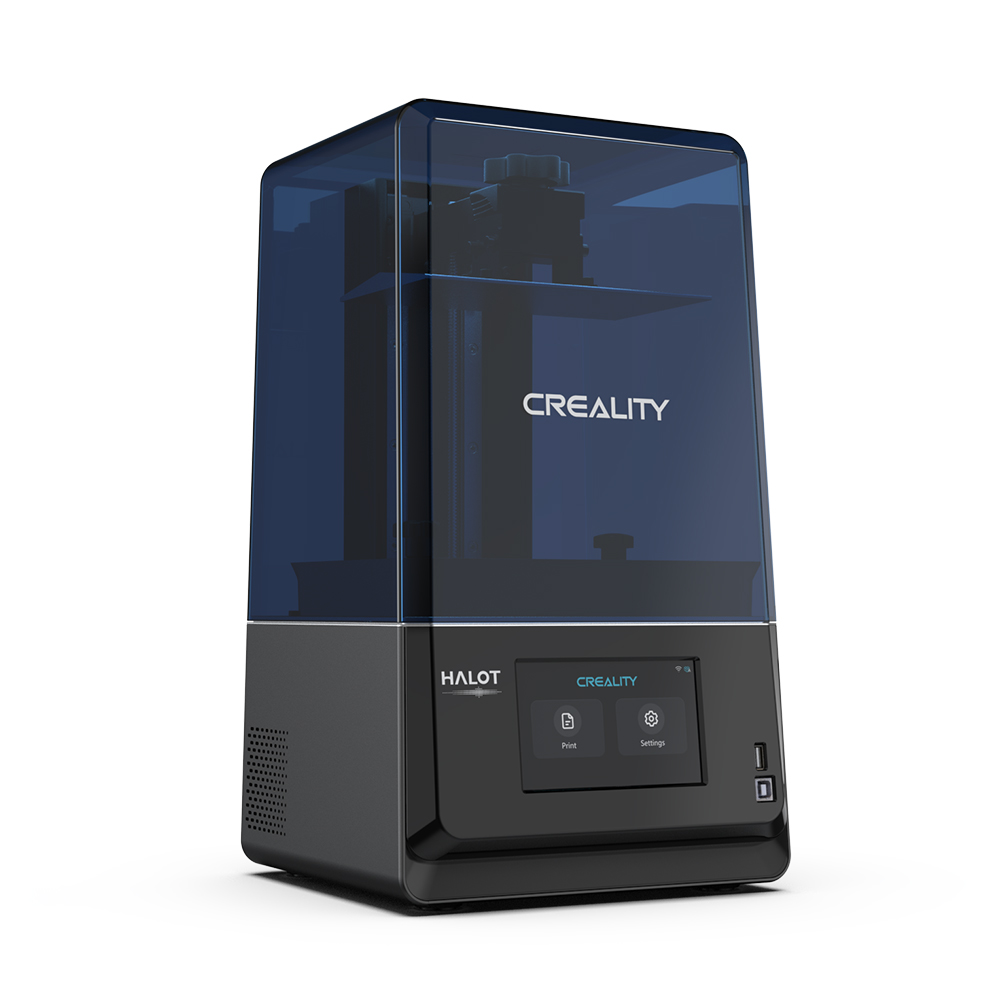Compare KP3S PRO V2 vs Halot One Plus
Comparison between the best 3D printers
Choose the best 3D printer at the best price. The cheapest 3D printers are here.
Buy a 3D printer here with 3D Fila.
 |
 |
|
| Model | KP3S PRO V2 |
Halot One Plus[BUY Halot One Plus] |
| Printing Material | Filament | Resin |
| Buy Filament for Kingroon KP3S PRO V2 | Buy Resin forCreality 3D Halot One Plus | |
| Estimated price | $229,00 | $399,00 |
| Manufacturer | Kingroon | Creality 3D |
| Release Year | 2024 | 2022 |
| Print Volume [mm] | 220x220x250 | 102x172x160 |
| Printer Size [mm] | 420x400x450 | 236x245x416 |
| Weight [kg] | 12,6 | 6,8 |
| Power Loss Recovery | NO | NO |
| Maximum Resolution [mm] | 0,01 | |
| Processor | ||
| Display | LCD Mono | |
| Power Supply | 300 W | |
| Connectivity | USB-C / MicroSD / Ethernet | USB / Wi-Fi |
| Operating systems | Windows, Mac, Linux | |
| Date of registration in the system | 2025-03-18 | 2022-10-11 |
| Release date | 2024 | 2022 |
| Extra features | The Kingroon KP3S Pro V2 is a high-speed FDM 3D printer with Klipper firmware, ensuring fast and precise prints. It features linear rails on all axes, a Direct Drive extruder with a 9.5:1 gear ratio, and an efficient ceramic heater. It includes an inductive sensor for automatic bed leveling, a PEI magnetic bed, a built-in accelerometer for vibration calibration, and Wi-Fi, Ethernet, and USB connectivity for remote control. | Crealitys Halot-One Plus printer stands out for its 4K+ resolution that delivers sharp details and consistent surfaces. It features a fast and responsive 5-inch LCD interface, as well as easy-to-use Halot Box software. It offers Wi-Fi connectivity and remote print monitoring, as well as an integrated air filtration unit, a rare feature in this price range. The Halot-One Plus is designed for the prosumer market, combining high quality with advanced features such as Wi-Fi and air filtration. During testing, it stood out for implementing these features at an affordable cost, while maintaining functionality. It features an attractive design with a UV-resistant blue cover and a robust dual rail system for the Z-axis, ensuring smooth and consistent movements. The large LCD and high resolution of the LCD mask (4320 x 2560) are other strong points, allowing for fine details and textures in prints. |
| Support for multiple colors and materials (AMS and CFS) | NO | NO |
Notes * |
||
| Cost-benefit | 7 / 10 | 8 / 10 |
| Hardware | 0.8 / 10 | 1.2 / 10 |
| Tela | . | . |
| Print volume | 3 / 10 | 3 / 10 |
| Performance | 3 / 10 | 9 / 10 |
| [BUY Halot One Plus] |
Conclusion |
| In comparing the Kingroon KP3S PRO V2 and the Creality 3D Halot One Plus, several key factors emerge that highlight their respective strengths and weaknesses. The **KP3S PRO V2**, categorized as an FDM printer, offers a larger print volume and a robust set of features tailored for users seeking a high-speed, precision printing experience. Its inclusion of advanced hardware such as Klipper firmware, automatic bed leveling, and a direct drive extruder makes it appealing for those looking for efficiency and reliability at a more accessible price point. However, the overall performance and technology integration of the KP3S is outmatched by its resin counterpart. On the other hand, the **Halot One Plus** excels in resolution and print detail thanks to its 4K+ capability. This resin printer is designed with prosumers in mind, equipped with features like an integrated air filtration system, remote print monitoring via Wi-Fi, and a user-friendly interface. Although it comes at a higher price, the investment is justified by its superior resolution and overall print quality, making it particularly suitable for detailed applications. In terms of cost-benefit ratios, the Halot One Plus scores higher, reflecting its advanced features and performance level. While the KP3S PRO V2 offers good value for users who prioritize cost and larger print sizes, the Halot One Plus stands out for those who are willing to pay a premium for high-quality end results and sophisticated capabilities. In conclusion, the choice between the KP3S PRO V2 and the Halot One Plus ultimately depends on the user's priorities: whether they value larger print volume and cost-efficiency or are focused on achieving higher detail and advanced functionalities in prints. |

